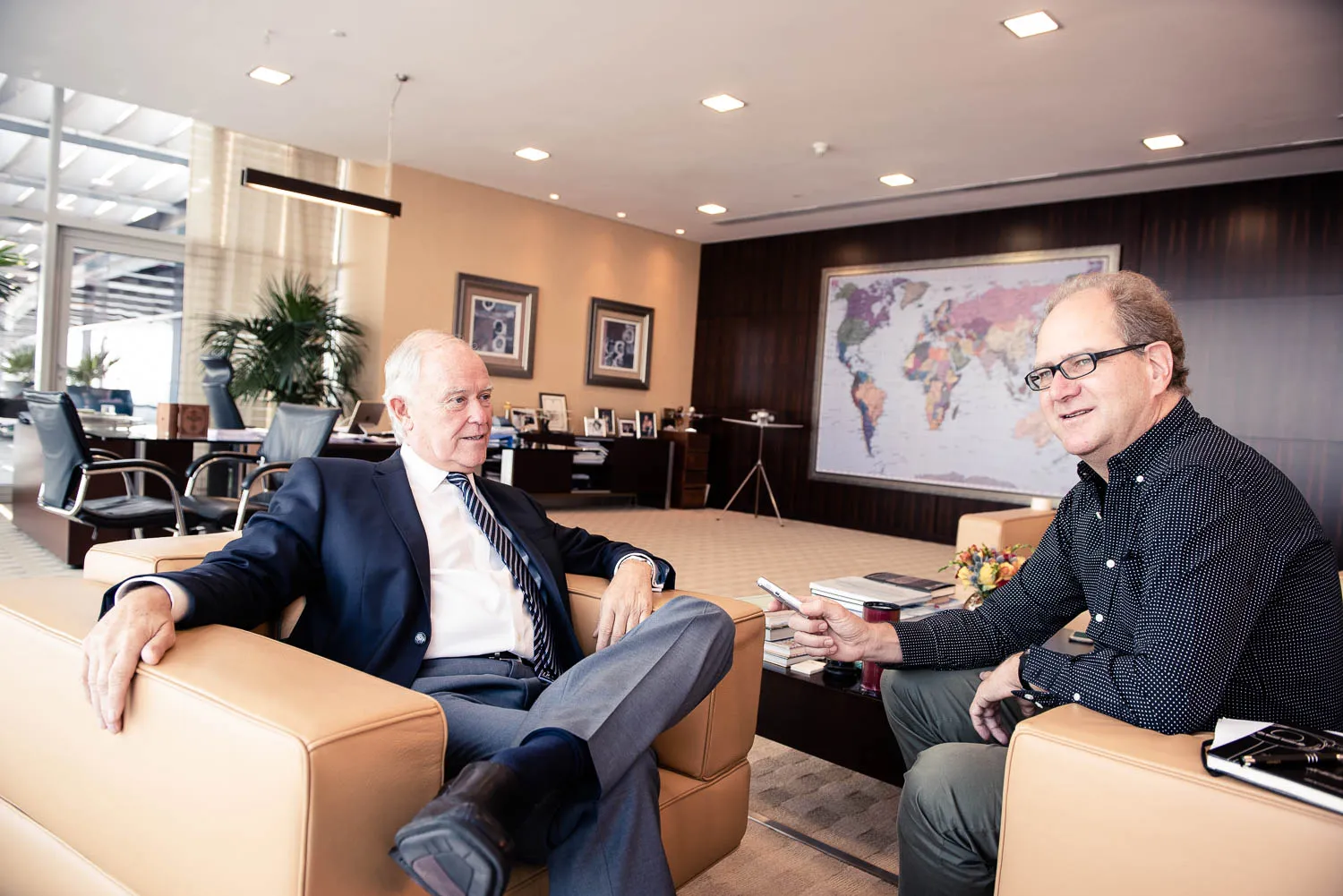
Emirates chief lyrical on premium economy but sad on A380 saga
Dec 30, 2020

Emirates' chief recently expressed a bittersweet sentiment regarding the airline's introduction of premium economy, highlighting its potential to enhance passenger comfort and elevate the overall travel experience. This new offering reflects a strategic response to evolving consumer preferences, aiming to attract a broader clientele. However, his tone shifted to sadness when discussing the fate of the A380, an iconic aircraft that has become synonymous with luxury travel for Emirates. The impending phase-out of the A380 marks the end of an era, leaving a sense of nostalgia for both the airline and its loyal customers who cherished the unique experience it provided.
Emirates Chief Lyrical on Premium Economy
In recent interviews, Emirates' Chief Executive, Tim Clark, has expressed enthusiasm regarding the introduction of their new premium economy class. This move marks a significant step for the airline, which has long been associated with luxury travel. The premium economy class is designed to offer an elevated travel experience without the hefty price tag of business class. Clark highlighted the importance of providing additional comfort and value, especially in a post-pandemic travel landscape where travelers are seeking more affordable yet luxurious options.
According to Clark, the premium economy seats will feature greater legroom, wider seats, and enhanced dining options. This new offering aims to cater to travelers looking for a blend of comfort and affordability. With a growing demand for premium economy seating across the aviation industry, Emirates is positioning itself to attract a broader audience. The premium economy class is expected to become a significant revenue stream for the airline, as it appeals to both business travelers and holidaymakers alike.
The Sad Saga of the A380
While Emirates is optimistic about its premium economy class, there is a notable sense of melancholy surrounding the future of the Airbus A380. The A380, once hailed as a marvel of modern aviation, has faced significant challenges in recent years. As the airline industry evolves, the demand for superjumbo jets has diminished, leading to the gradual phase-out of the A380 fleet. Clark has been vocal about his disappointment, noting that the A380 has been a vital part of Emirates’ identity and success.
The A380 has provided passengers with unmatched space and comfort, setting a standard for long-haul travel. However, as airlines shift their focus towards more fuel-efficient aircraft, the A380's operational costs have become a liability. Clark’s sentiment reflects a broader industry trend, as airlines reevaluate their fleets in light of environmental concerns and changing consumer preferences.
Charting the Future of Aviation
Emirates has embraced innovation and adaptability as they navigate these changes. Below is a table highlighting key features of the new premium economy class alongside the legacy of the A380:
| Feature | Premium Economy | A380 |
|---|---|---|
| Seat Width | Wider seats with extra legroom | Spacious seating layout |
| Dining Options | Enhanced meal choices | Gourmet dining experiences |
| Entertainment | Upgraded in-flight entertainment | Large screens and extensive content |
| Cabin Ambiance | Exclusive cabin design | Luxurious and spacious cabin environment |
This contrast highlights Emirates' commitment to maintaining its reputation for quality while adapting to the evolving aviation landscape. The premium economy class is a direct response to traveler demands for more value-oriented options, while the A380's decline symbolizes the shifting priorities of airlines worldwide.
The Road Ahead for Emirates
Looking forward, Emirates is determined to lead in innovation and service excellence. The introduction of the premium economy class is not merely a reaction to market trends; it is a strategic move to enhance their competitive edge. Clark believes that by offering a tiered travel experience, Emirates can cater to a wider range of passengers, from those seeking luxury to those prioritizing comfort on a budget.
As the airline industry continues to rebound, Emirates is poised to leverage its strengths. They have consistently led the market in terms of customer service and innovation. The premium economy class is expected to further solidify their position as a preferred airline for travelers worldwide.
Conclusion: A Balancing Act
In conclusion, while the mood surrounding the A380 may be somber, the excitement surrounding the premium economy class offers a glimmer of hope for the future of Emirates. Tim Clark's vision emphasizes the need for adaptability in a rapidly changing industry. By embracing new trends and addressing passenger needs, Emirates is not only preserving its legacy but also paving the way for a successful future.
The duality of the situation—celebrating the launch of premium economy while bidding farewell to the A380—captures the essence of the aviation industry's evolution. As Emirates navigates this transition, the focus remains on delivering exceptional travel experiences that resonate with a diverse range of passengers.
Related Articles

Explore Thailand: The Best Islands to Visit for Paradise, Adventure, and Relaxation

The Ultimate Guide to the Best Islands in Thailand for Your Next Getaway

Do babies need passports? How to get a passport for a newborn

How to get a U.S. passport fast: here’s how to expedite the process

What is Mobile Passport Control: 5 reasons why you should use it

SENTRI vs. Global Entry: A detailed guide

Do you need a passport to go to the Bahamas? Let’s find out

Do you need a passport to go to Mexico? A detailed guide

Do you need a passport to go to Canada? We got the answer

Do You Need a Passport for a Cruise: An Essential Travel Guide

Booster Seat Requirements: All the Rules to Follow in Your Rental Car

What Are the World’s Most Powerful Passports, and How Does Yours Rank?

How to Take a Passport Photo at Home: A Helpful Guide

You've got to have heart! Southwest's new livery

Your opinion: Should water be free on low cost carriers?

Young women bolder than guys as solo travellers
